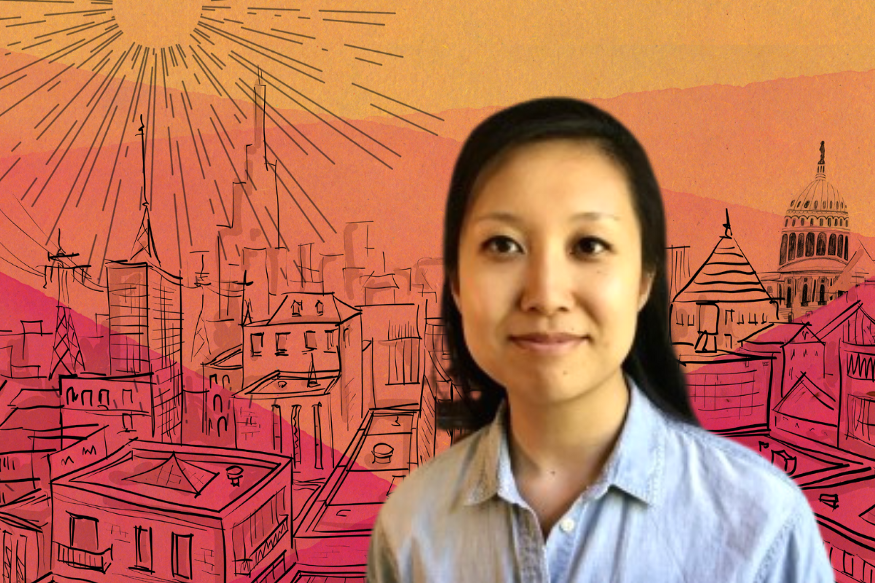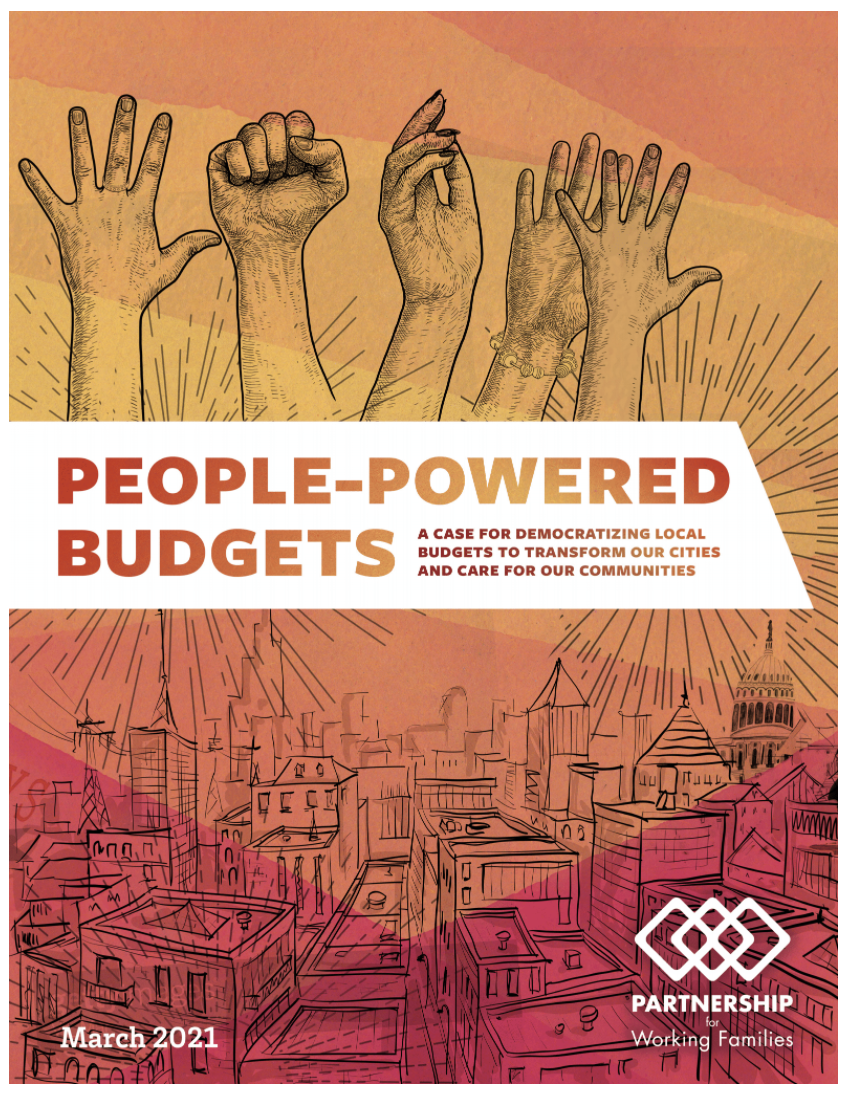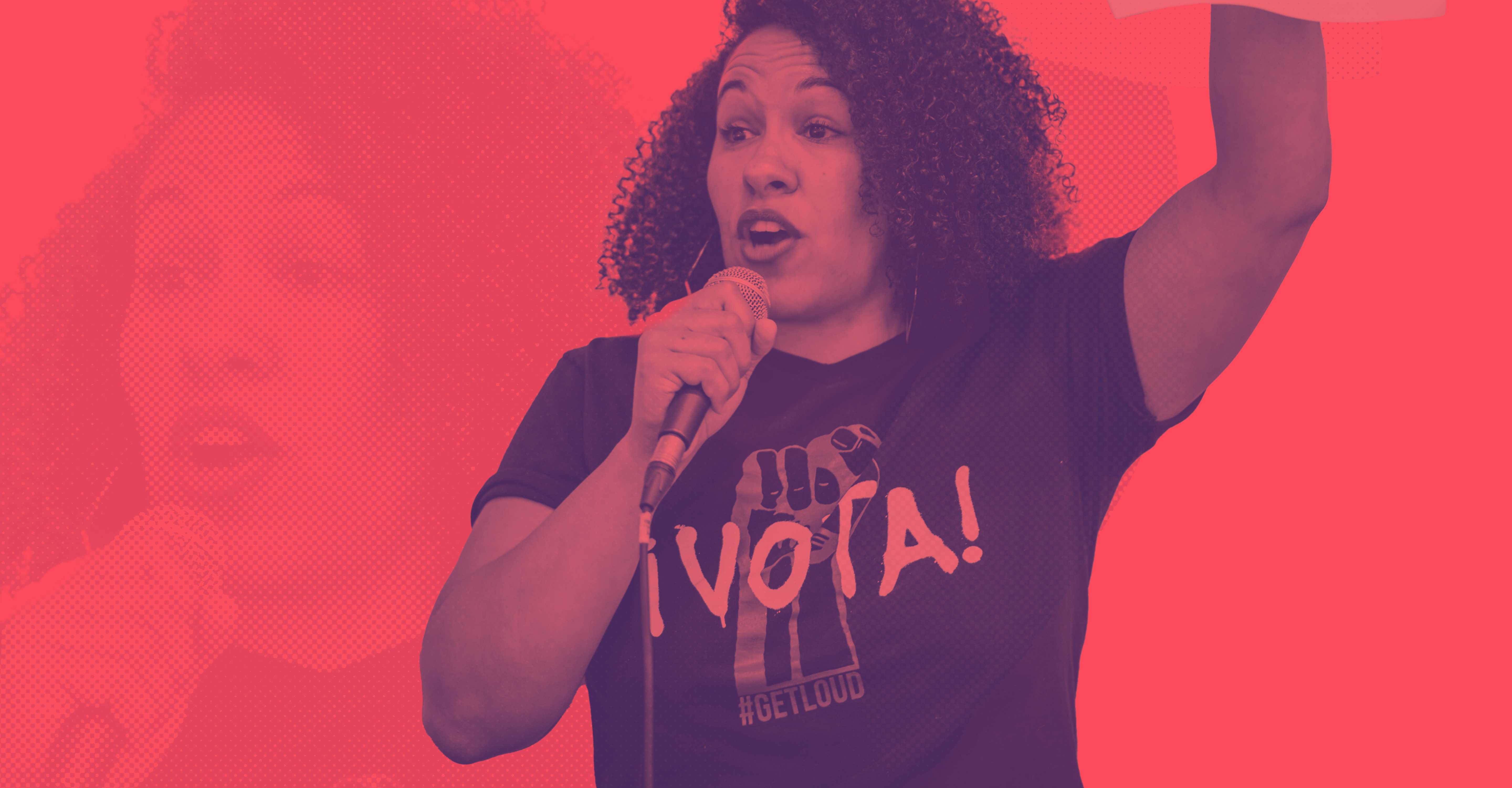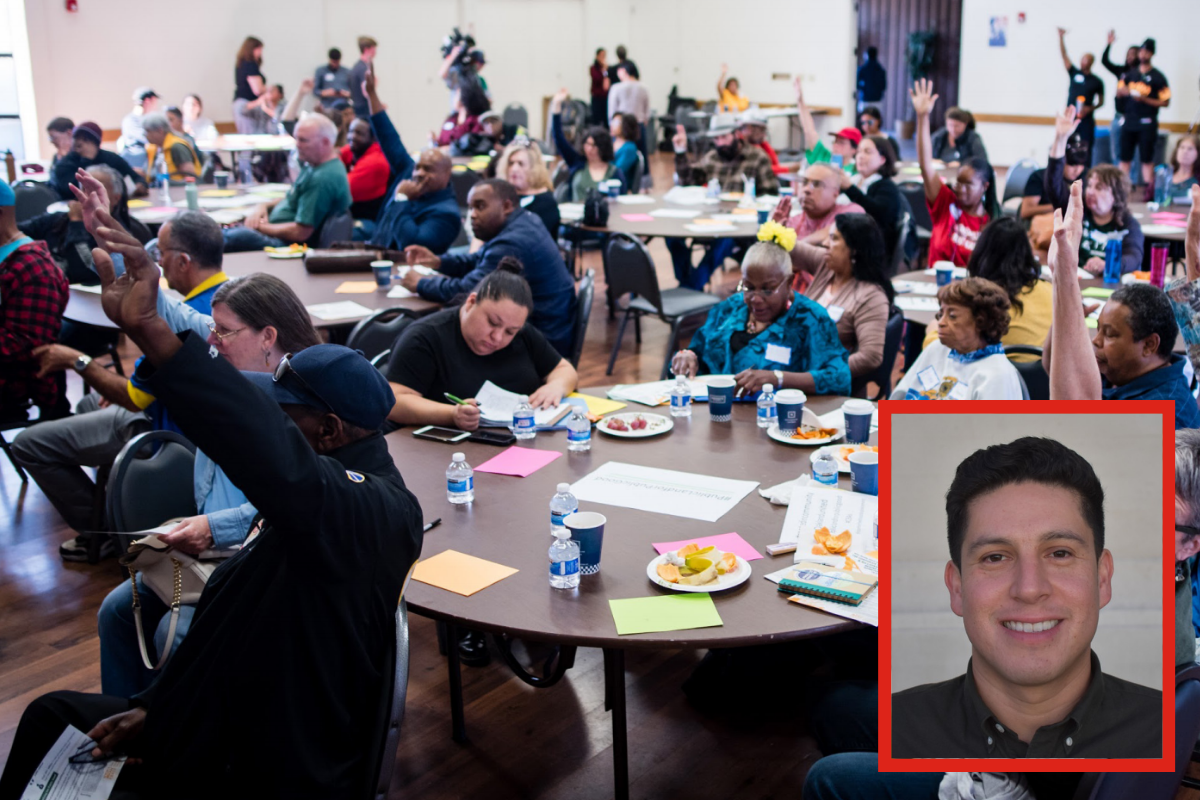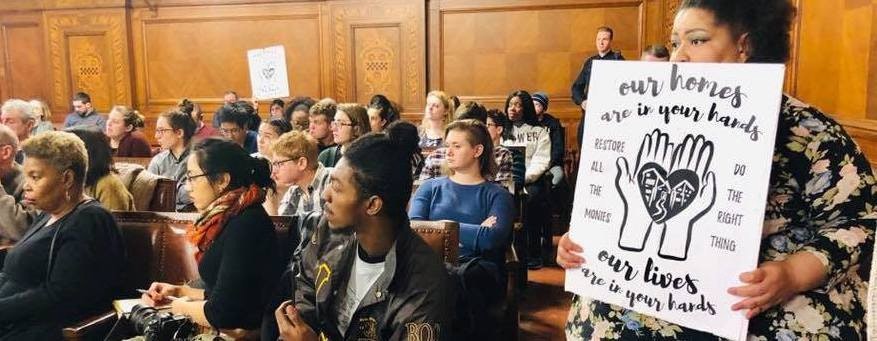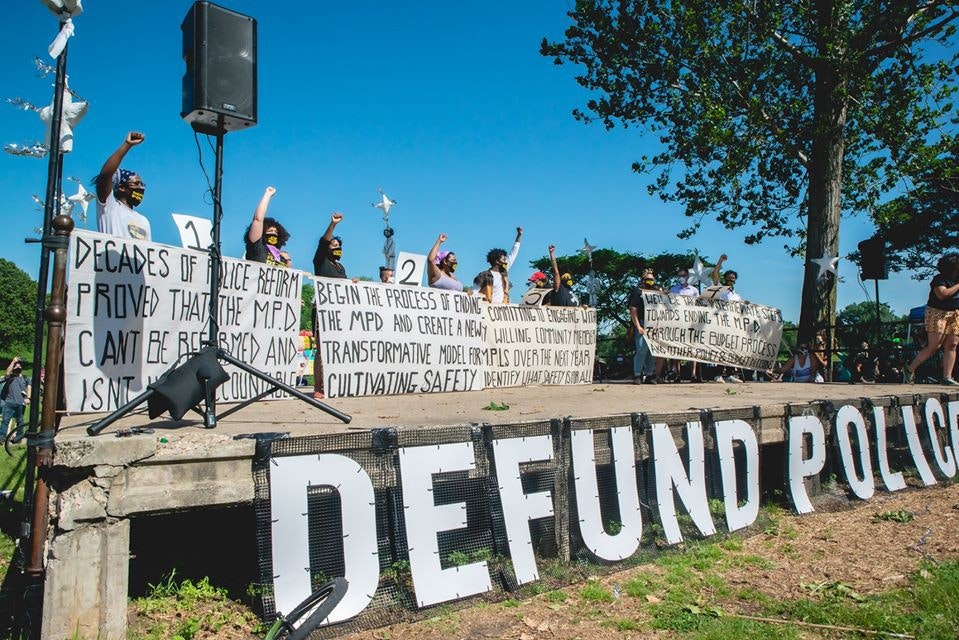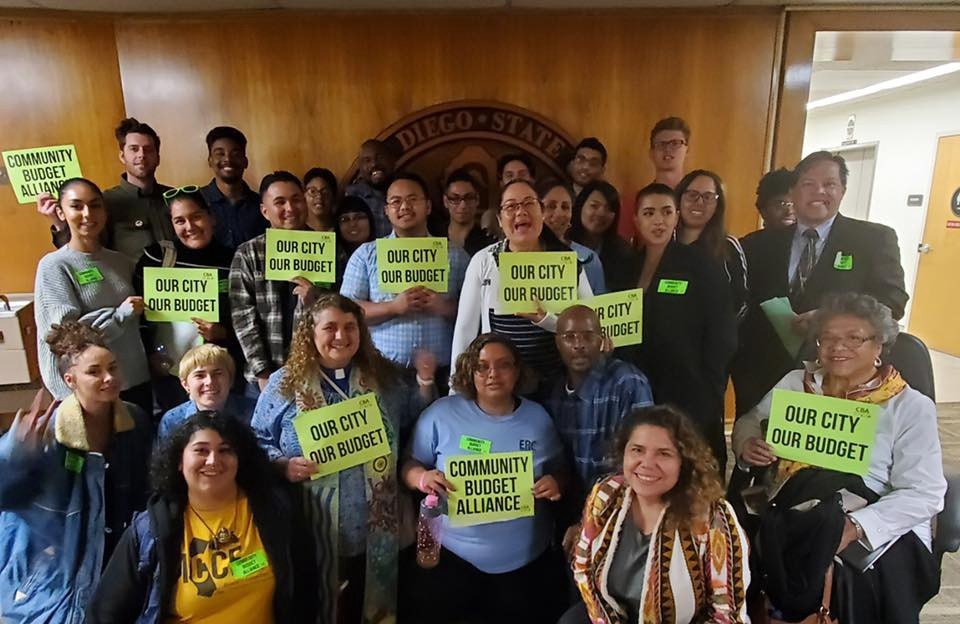By Kathryn Cai, Mellon/ACLS Public Fellow and Public Goods Policy Strategist, and Jeff Barrera, Communications Director
Jeff: PowerSwitch Action has been so fortunate to have you on board these last two years through the ACLS Fellowship, which places recent humanities PhDs with nonprofit organizations committed to promoting social justice in their communities. What drew you to the fellowship initially?
Kathryn: I was drawn right away to PowerSwitch Action as an organization and felt really excited to be chosen to be a Fellow here.
Being a fellow here has meant having the opportunity to contribute to the organization’s work to help our communities care for each other — specifically, thinking about how we can make local budgets more accessible and equitable, and protecting people’s ability to organize for the change they want to see in their cities.
I’ve always had a strong desire to connect my research and teaching interests to the ways people are experiencing issues in their own lives. My PhD research was on care work. I looked at how contemporary narratives think about care work, and its continued evolution in connection with race and gender.
I conceive care work broadly as the work that sustains our daily lives — extending beyond caretaking to include different kinds of work like manufacturing, domestic, or even biotechnical labor.
The ACLS Public Fellowship always called out to me as a way to dive deeply into the connection between scholarship and organizing.
I was thrilled about the opportunity to do concrete work contributing to a broader cultural shift we’re experiencing right now — a growing culture of recognizing the importance of care work, and actually materially valuing and protecting it.
Jeff: What have been some of the highlights of the fellowship?
Kathryn: I’ve been excited to learn a lot about corporate interference and local budget fights, both in terms of the broader landscape, and in work and campaigns that are happening on the ground through PowerSwitch Action’s affiliate organizations.
When I first started the fellowship, I did a deep dive into participatory democracy and wrote a report on People-Powered Budgets: A Case for Democratizing Local Budgets to Transform Our Cities and Care for Our Communities. It was a lot of new-to-me information, and I had to learn a lot very quickly — which is also something that the PhD really prepares you for, I think!
I’m also really excited to be learning more about popular education and working with affiliates to develop some popular education around local budgets as part of PowerSwitch Action’s broader learning on participatory democratic practices and how to grow these skills.
As a teacher, I’ve always been really invested in pedagogy that centers and begins with students’ or participants’ experiences, particularly those who don’t always see themselves reflected in our official institutions or feel that the knowledge of their communities is valued. It’s exciting to think about and see these values in action in the context of organizing.
It’s also just been gratifying to learn so much about areas that I previously knew very little about and to reflect on adapting to a pretty big change in context and work over the last year and a half. And fun to get to know my colleagues, who are all wonderful people!
Jeff: When you reflect on the future of movement work, what role do you see scholars playing in our collective liberation?
Kathryn: I hope that more PhD graduates can see how the skills and passions they’ve developed over all the years of doing their PhDs can be really valuable to movement work. I feel lucky to learn a lot from folks who have been organizing and doing movement work for many years, and I’m also struck by how we always need to look to thinkers and scholars to help us make sense of the world and give us frameworks to consider the urgent issues we’re confronting. I think that’s especially true given how quickly the world is changing at the moment and our need for tools to understand, for example, changing forms of racialization through a transnational lens or authoritarianism around the world.
I really hope that we can continue to build these connections and synergies intentionally, recognize how much we have to learn from one another, and create more spaces where we can all work together to confront these challenges.
Jeff: What advice would you give to someone thinking about applying for the ACLS Fellowship?
Kathryn:
Apply! I’ve loved how much I’ve been able to stretch and grow throughout the fellowship. I think anyone who’s interested in fun and exciting challenges in the service of trying to build a more equitable world should apply with PowerSwitch Action.
In terms of the application process — I would suggest synthesizing the different interests and skill-sets that you have developed over the course of the PhD and how they might translate usefully to a different context. Sometimes the kinds of expertise we develop in a PhD don’t always seem like they would apply to other areas of work, but I think framing these experiences as skills might help make them more translatable.
For example: What kinds of research are you skilled at doing? What does this process look like? What kinds of audiences have you written for? How have you translated technical field knowledge for a broader audience? How would teaching or presenting at conferences translate to facilitation or presentations more generally?
In terms of thinking about the right opportunities for you, I’d also lead with what you’re curious and excited to learn more about or engage more deeply in.
Lastly, as difficult as this can sometimes be, I’d encourage someone interested in this fellowship to embrace it as an open-ended learning process that can help illuminate different possible future paths. This doesn’t always happen in a straightforward way, but I think being open to the many different directions this fellowship might take you in is a helpful mindset.
To apply for an ACLS Fellowship with PowerSwitch Action, visit https://www.acls.org/competitions/acls-leading-edge-fellowships/. The application for 2022 closes on March 28.
To learn more about Kathryn Cai’s work on participatory democracy, visit peoplepoweredbudgets.org and check out her article in The Forge.
